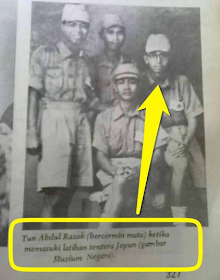AN UNUSUAL REQUEST
A man walks into the doctor's office and says: "Doctor, my name is Mark, and I'd like to be castrated."
"What? Are you sure about this? Why?" asks the doctor, amazed.

"It's something I've been considering a long time and I'd like to have it done" replies Mark.
"But have you thought it through? REALLY through?" asks the concerned doctor, "It's a very serious operation and once it's done, there's no going back. It will change your life forever!"
"I'm aware of that and you're not going to change my mind, so please book me in to be castrated or I'll simply use another doctor."
"Well, OK.", says the doctor, "But I'll have you know that it's against my better judgment!"
So Mark has his operation, and the next day he is up and walking very slowly, legs apart, down the hospital corridor with his drip stand. Heading towards him is another patient, who is walking exactly the same way.
"Hi there," says Mark,"It looks as if you've just had the same operation as me."
"Yes, it seems like" said the patient, "as for me, I finally decided after 37 years of life that it was time for me to be circumcised."
Mark stared at him in horror and screamed, "Dammit, THAT was the word!!!"
-----------------------------------------------------------------------
DILEMMA
“Hello.”
“Mrs. Sanders, please.”
“Speaking.”
“Mrs. Sanders, this is Doctor Jones at Saint Agnes Laboratory. When your husband's doctor sent his biopsy to this lab last week, a biopsy from another Mr. Sanders arrived as well . We are now uncertain which one belongs to your husband. Frankly, either way, the results are not too good.”
“What do you mean?” Mrs. Sanders asks nervously.
“Well, one of the specimens tested positive for Alzheimer's and the other one tested positive for HIV. We can't tell which is which.
“That's dreadful! Can you do the test again?” questioned Mrs. Sanders.
“Normally we can, but the NHS will only pay for these expensive tests once.”
“Well, what am I supposed to do now?”
“The NHS helpdesk recommend that you drop your husband off somewhere in the middle of town. If he finds his way home, don't sleep with him."
---------------------------------------------------------------------------
A NEW AGE DAUGHTER-IN-LAW
Some daughters-in-law are well trained and well mannered....
They don't come to change the family, they are here to ...
The new wife was being welcomed at the husband's home in a traditional
manner. As expected she gave a speech;
'My dear family members, I thank you for welcoming me in my new home
and family. Firstly, my being here does not mean that I want to change
your way of life, your routine ..'No, I will never do that, never in a
million years.'
'What do you mean my child?' asked the father-in-law.
'What I mean dad is (looking at her in-laws);
Those who used to wash the dishes must carry on washing them.
Those who used to do the laundry must carry on doing it.
Those who cooked should not stop at my account, AND
Those who used to clean should continue cleaning!!!
'And what are you here for?' enquired the mother-in-law.
'I'M HERE TO ENTERTAIN YOUR SON!!!!!'
---------------------------------------------------------------------------------------------------
A JAPANESE ELEVATOR PRANK
---------------------------------------------------------------------------------------------------
VOICE RECOGNITION ELEVATOR


